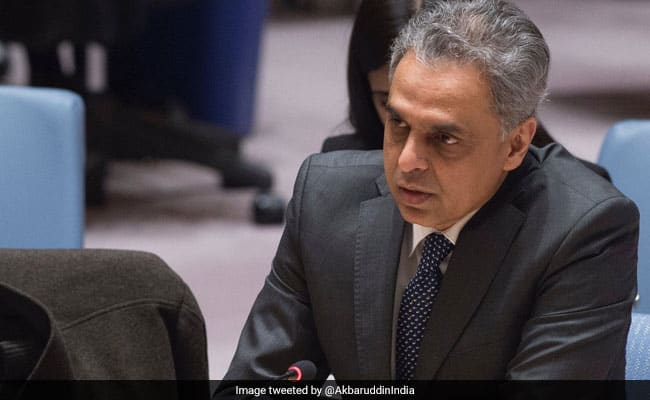UNITED NATIONS: India has demanded transparency in the UN Security Council reform process so that the people could know what is preventing the members from translating discussions into a negotiating text for the much needed revamping of the world body’s top organ.
Indian Ambassador to the UN Syed Akbaruddin said that even after almost a decade, UN members have not been able to agree on even a document that would be the basis of negotiating reforms.
In his address to the plenary meeting of the UN General Assembly on the question of equitable representation on and increase in the membership of the Security Council, Mr Akbaruddin said there was no greater example of institutional inertia that resisted constructive adaptation than the inability to translate discussions into a text for negotiations.
This is despite 10 years of so-called intergovernmental negotiations authorised by the General Assembly and the continuous annual consideration of the agenda item here since 1993, he said.
“Modern challenges take the concerted efforts not just of governments, but also of whole societies, and so wider society could be more involved in the diplomatic process. Perhaps, we need to consider options of opening the process, so that others are aware of what is it that stops the current discussions from even beginning on the path of a negotiating text,” Mr Akbarruddin said.
“Transparency in the working of diplomats is a useful adaptation that we can consider in this changing world as a pathway to progress,” he said.
On the inordinate delay in reforming the UN Security Council, Mr Akbaruddin told members of the General Assembly, that there is “no more vivid reflection” of deepening crisis of multilateralism than the “dysfunctional Security Council”, which no longer reflects contemporary realities and hence confronts a crisis of legitimacy and credibility.
“When proliferating transnational threats, deepening economic interdependence, worsening environmental degradation – all call for effective multilateral action – we have fallen short of a substantive response on an issue as important as reform of the Security Council,” he said.
“This is a sign that the ageing pillars of the established multilateral order are creaking and crumbling all around us, unable to meet the need for change,” Mr Akbaruddin said.
Referring to the agenda of discussion of the UN Security Council reform, the top Indian diplomat said this is indicative of the “lack of even incremental change in our approach to issues of importance,” oblivious of the pace of change all around.
“As multilateral diplomats, we are used to punishing processes, but never has a process itself become a punishment, as in this case,” he rued.
“If this is the ‘new normal’, it does not bode well for multilateralism. Never have the normative foundations of multilateral cooperation shown up to be weaker than in this instance,” he said.
PTI

